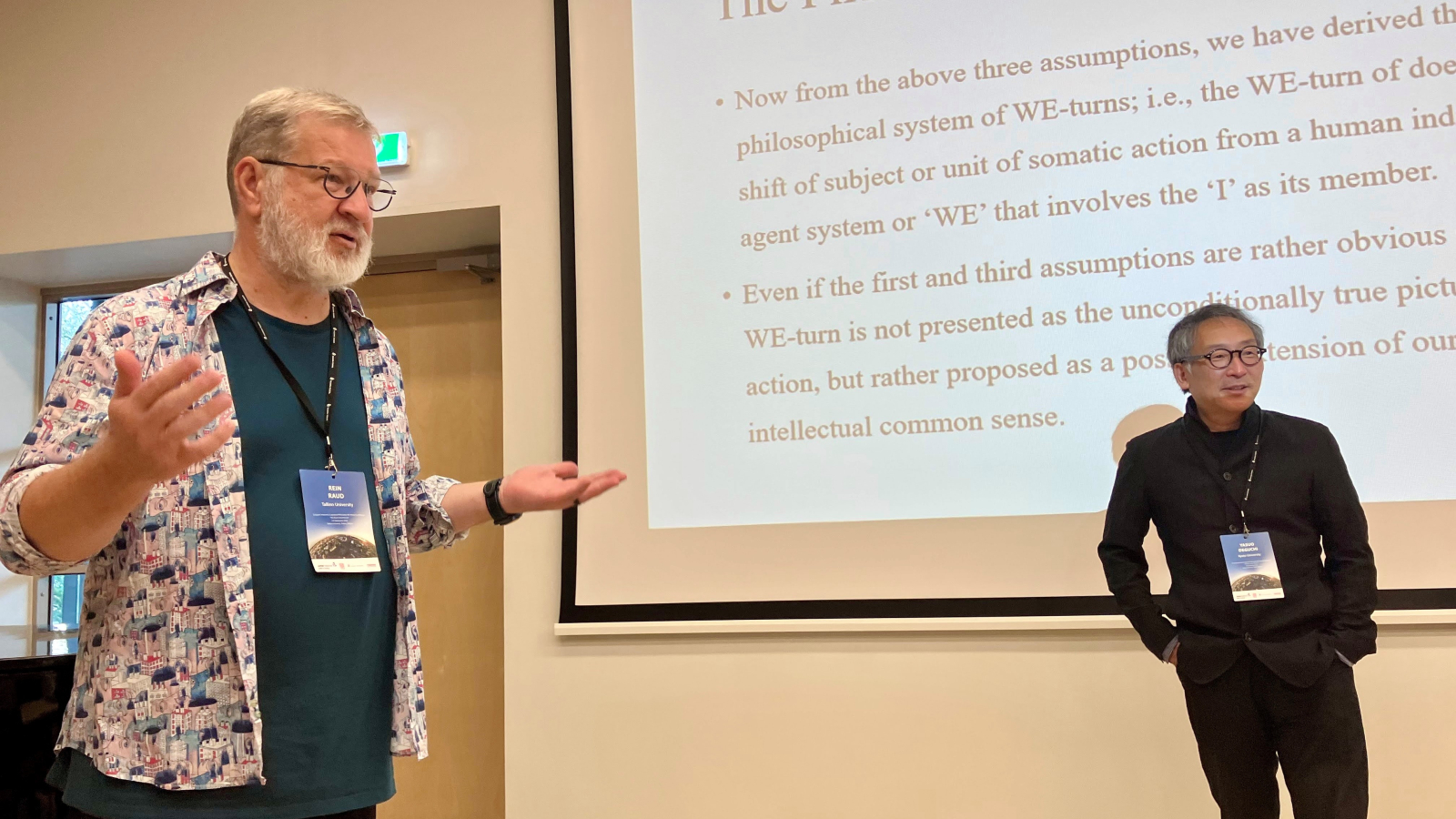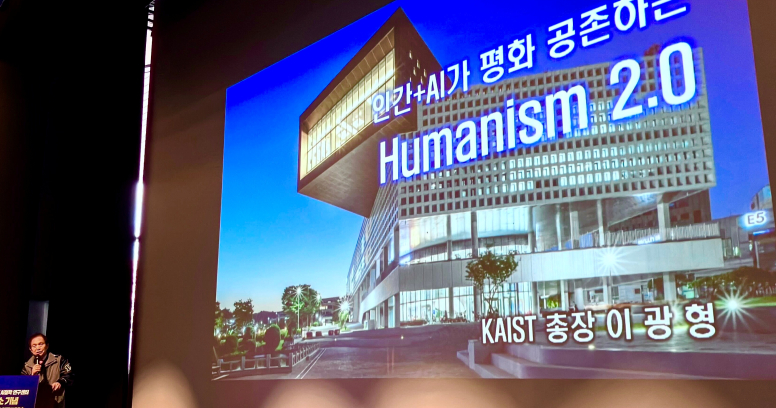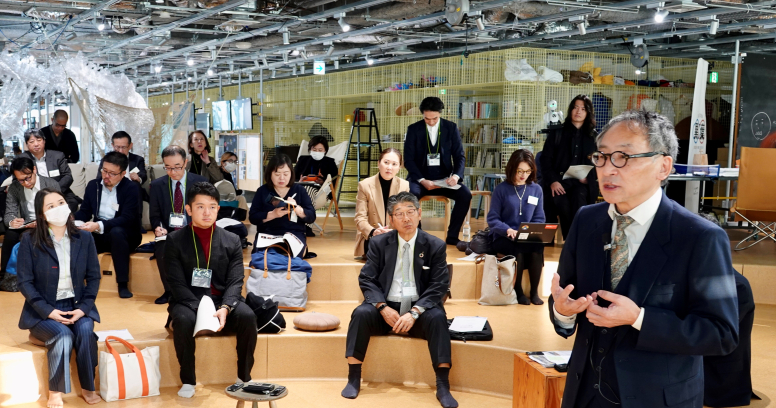Prof. Deguchi interacts with researchers of Japanese philosophy at Estonia conference

Professor Yasuo Deguchi, Co-Chairperson of the Kyoto Institute of Philosophy, visited Estonia as a keynote speaker at the Annual Conference of the European Network of Japanese Philosophy.
Details
Professor Yasuo Deguchi at Kyoto University, Co-Chairperson of the Kyoto Institute of Philosophy, visited Estonia as a keynote speaker at the 8th Annual Conference of the European Network of Japanese Philosophy (ENOJP).
Its annual conference attracts participants not only from Europe but also from all over the world, including Japan. This year’s conference was held at Tallinn University, Tallinn, Estonia from September 6 to 8 and featured over 80 individual presentations by scholars in approximately 35 sessions and panels.
In his lecture at the final day, Professor Deguchi presented the concept of the “WE-turn,” which aims to shift the notion of the agent from the individual “I” to the collective “WE,” and to break free from traditional frameworks of individualism. He began his presentation by explaining the basic structure of the WE-turn in bodily actions, asserting that every somatic action is supported by a “multi-agent system” which consists of many agents such as humans, non-human lives, natural inanimate objects, artifacts and so on.
He argued that this WE-turn demands a radical rethinking of traditional understandings of various value-related concepts such as responsibility, rights, and well-being, with significant implications for our real-life situations and social systems. One such implication is the transformation of the relationship between humans and AI/robots, from a “master-slave model” in which AI/robots are regarded as tools/slaves serving human masters, to a “fellowship model” in which they are treated as fellows on an equal footing with human, explained Professor Deguchi.
He also contextualized the WE-turns within the genealogy of the concepts of “true self” and “holy fool” in East Asian thought. As expected at a conference of Japanese philosophy scholars, this idea sparked active questions and gathered numerous comments.
Following the closing of the annual conference, a 2-days workshop titled “The Philosophy in the WE Mode” was held from September 9 to 10 in Käsmu, a coastal town about an hour’s drive east of Tallinn, co-organized by Professors Deguchi and Rein Raud (Tallinn University).
In his presentation, Professor Deguchi expanded the annual conference keynote by posing the question, “How can the self-as-WE be experienced by ourselves?” He explained that the multi-agent system that makes possible the actions of “I” is an abstract entity that includes natural and artificial things, and therefore “WE” cannot have a self-consciousness of Self-as-WE.
However, the “I” within the system, endowed with mental properties, is able to be aware of the multi-agent system it belongs to as “self” in various ways. Here lies, he concluded, the unique role and significance of the “I” that can neither be erased nor reduced to a “WE” in perceiving the Self-as-WE.
Others



